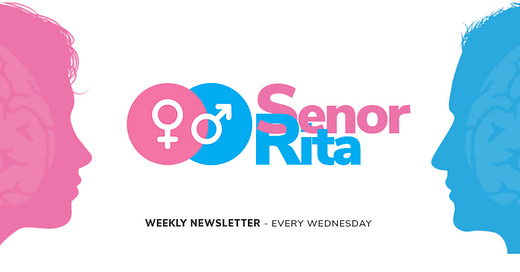Gender Inequity Begins with Infants
It all begins at the beginning. Gender inequities, too, start with sucklings.
In Nigeria, more male children between 0-6 months are exclusively breastfed compared to female children, the United Nations Children Emergency Funds(UNICEF) data on child breastfeeding shows.
Between 2018 and 2021, The proportion of male babies in Nigeria who enjoyed exclusive breastfeeding rose from 29% in 2018 to 36% in 2021. Among their female peers, it rose from 28% in 2018 to 33% in 2019.
Exclusive breastfeeding means that the infant receives only breast milk. No other liquids are given – not even water – except for oral rehydration solution or drops/syrups of vitamins, minerals, or medicines.
The World Health Organization recommended that "infants should be exclusively breastfed for the first six months of life to achieve optimal growth, development, and health.’’
However, data on the exclusive breastfeeding pattern of babies between males and females shows that between 2018 and 2021, more male children were exclusively breastfed than females.
Exclusive Breastfeeding helps protect newborns against short- and long-term illnesses and diseases. A well breastfed baby has a lower risk of asthma, obesity, type 1 diabetes, and sudden infant death syndrome (SIDS).
There are many health benefits for both the mother and infant. Breast milk contains all infant nutrients in the first six months. It protects against diarrhoea and common childhood illnesses such as pneumonia.
It also shares antibodies from the mother with her baby. These antibodies help babies develop a robust immune system and protect them from illnesses.
Baby Boys Depart Earlier 😢
Like Men have a lower life expectancy than women, baby boys too have begun to exhibit the gender gap in infant mortality, the American Central Intelligence Agency (CIA) data has shown
In 2023, the infant mortality ratio among children shows that 60 in 1,000 male children lost their lives before the age of one, while 50 in 1,000 female babies suffer like fate.
The World Health Organization (WHO) defines the Infant mortality rate as the probability of a child born in a specific year or period dying before reaching the age of one. It is the number of infant deaths for every 1,000 live births.
However, as of 2023, Nigeria recorded the 12th highest infant mortality rate globally.
Many situational factors contribute to the infant mortality rate, such as the pregnant woman's level of education, environmental conditions, political infrastructure, and level of medical support. Improving sanitation, access to clean drinking water, immunization against infectious diseases, and other public health measures can help reduce infant mortality rates.
Maternal and Paternal Child Care
To avert and reduce infant, under-five, and maternal mortalities requires concerted efforts by adults of both genders.
The World Health Organization, WHO advised that women and newborns require support and careful monitoring after birth. Most maternal and infant deaths occur in the first six weeks after delivery, yet this remains the most neglected phase in the provision of quality maternal and newborn care.
All women and newborns need postnatal checkups in the first six weeks to cater for their newborns. This helps reduce maternal and infant deaths that occur in the first six weeks after delivery. Yet, it remains the most neglected phase in the provision of quality maternal and newborn care.
The Nigeria Labour Act provides that a ‘’female worker who has been in employment for six months or more immediately before the maternity leave shall be entitled to at least 50% of her salary during the duration of the leave.’’
The law encouraged working-class women to be given adequate time to recover after pregnancy and birth, care and bonding with the newborn (including, for most, establishing breastfeeding), adjust to changing family dynamics, and obtain postpartum and well-child care.
However, not only the women are being considered to nurse the newborn alone. The Labor Act law enabled collaboration between male and female parents. Some days were assigned to the male whose wife just delivered to render support for their wives.
‘’The Labour Act does not make any provisions for paternity leave, and any employee entitlement in this respect will be subject to the terms and conditions of such employee’s employment contract. The Federal Government of Nigeria has approved a 14-day paternity leave for male employees in the Federal Civil Service.
Lastly, the Labour Act provides that any employee nursing her child is permitted to nurse her child for half an hour twice a day during working hours.
Thanks for reading this edition of SenorRita. It was written by Kafilat Taiwo and edited by Oluseyi Olufemi.







